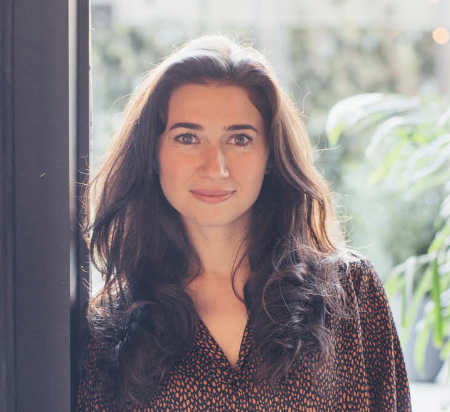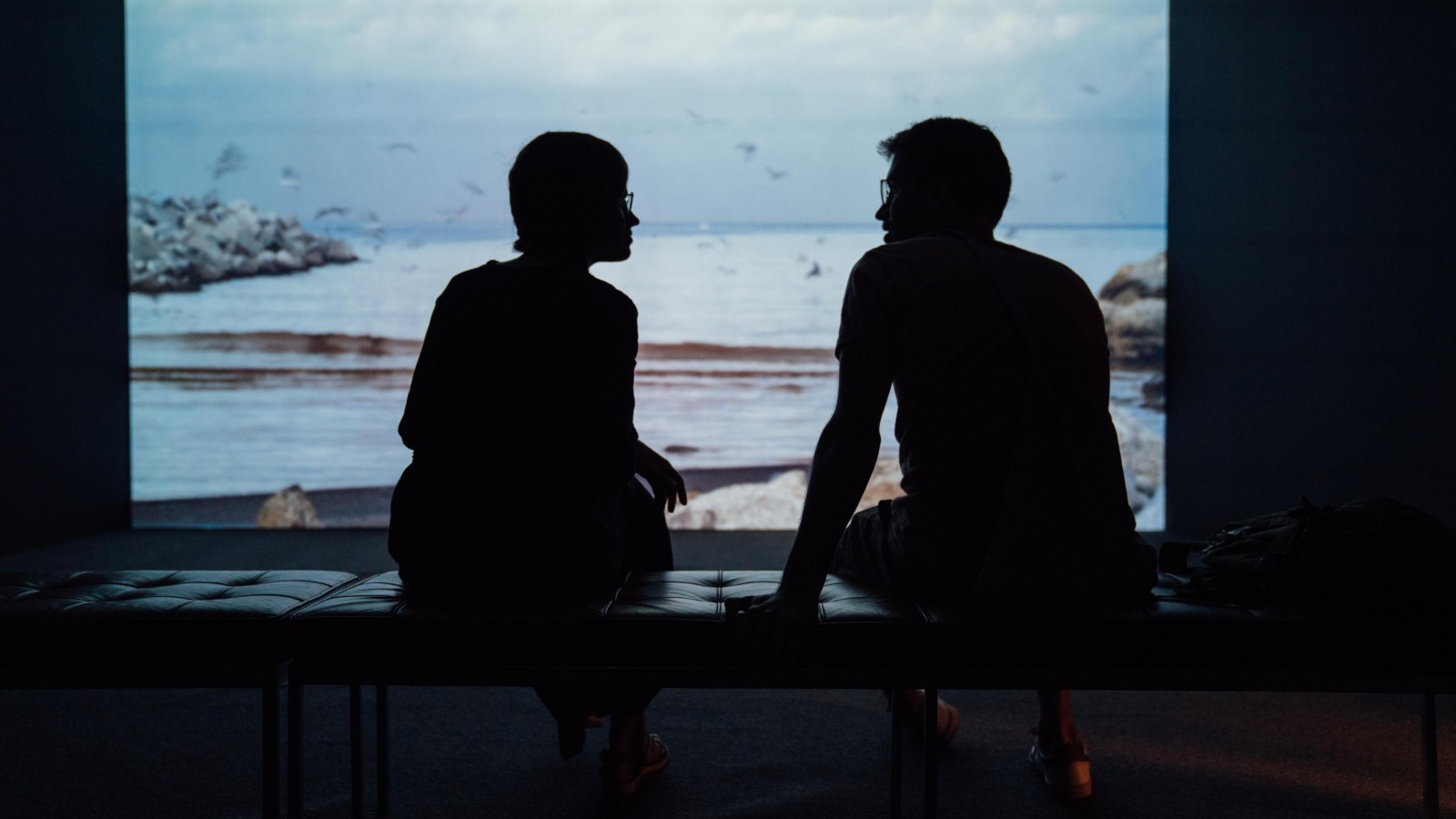As a 35 year-old psychologist living in New York, I have not only gone through my fair share of hard knocks from years of dating in the city, but I’ve also watched my patients do the same. Consequently, I’ve given the longing for love and the pain of rejection – including the pain of rejecting – a great deal of thought. You may agree that the old trope, “It’s not you, it’s me” is overplayed and trite, that we are in need of something new. In both my personal life and clinical work, I’ve recently begun to use a phrase I feel is not only kinder, but also far closer to the truth: “It’s not you, it’s my unconscious.”
Dr. Harville Hendrix, couples therapist and researcher describes this concept more succinctly using the term “imago,” which he defines as the composite, unconscious image of love we develop during childhood. Based on the prominent positive and negative traits of our primary caregivers, it is believed that this imago drives partner selection later in life. When we consciously seek love in adulthood, we unconsciously look for someone who both fits our imago and also has the potential to fill our imago’s cracks, a person familiar enough to feel like family, but different enough for us to maintain the hope that they can heal the wounds that very same family caused. In other words, our search is for home; though not the home we know. The home we have always longed for. Home 2.0.
This is not a new idea. From Plato’s Symposium, written in 378 BC, in which a single being is split in two and love is conceptualized as “our pursuit of wholeness” all the way to Jerry Maguire’s iconic – though controversial – line, “You complete me.” The imago aches for totality, to be one, one with our lover, but also and perhaps equally as significant, one with the chipped off, repressed, disowned parts of ourselves reflected back at us through our lover’s gaze.
So, that mysterious “x-factor,” that spark, that ineffable connection that occurs when someone walks into a room and time slows and you can’t breathe and you’re simultaneously excited and terrified and they, miraculously, appear to feel the same? Well, that’s what Hendrix would call an “imago match.” You may exclaim, “It’s love at first sight! It’s magic!” But perhaps it’s simply the imago activated, lit up like a Christmas tree. Perhaps it’s just two people, at light speed, on a deep unconscious level recognizing the love that they have always known – the age old, “Have we met before?” – and also projecting the fantasy of the love they have always wanted. I personally would still consider this magic. It’s just the kind where you’ve watched enough Youtube videos to know the magician’s tricks, yet you remain in complete awe of the sleight of hand nonetheless.
Indeed, the unconscious is a skilled magician, a sage matchmaker, a healer you don’t have to pay for who knows you better than you know yourself. But, if left unexamined, an imago match can surely go awry. What may at first seem healing, also has the potential to deeply trigger and re-wound. That beautiful, lit up Christmas tree could turn out to be like the ones from the early 1900’s, decorated with real candles rather than string lights that when accidentally knocked over, causes the whole living room to go up in flames.
You’ve seen this before. It’s the friend whose mother died when he was young, and now is frequently attracted to women who remind him of her in some way, but may be just as emotionally unavailable as she is from the grave. Or the colleague who can’t shake how turned on she is by her narcissistic boss who, enjoying the adoration, pays more attention to her than either of her parents ever did. Or the psychologist raised by neurotic Jewish therapists who was taught to love and respect the psyche, but because she also had a deep, spiritual hunger that went unfed, is now almost exclusively attracted to shamans *insert hand up emoji.*
Furthermore, while Hendrix focuses largely on that moment of connection, what about rejection? What about when it’s not an imago match, but rather an imago mismatch? Those are the times when to you it has felt so “right,” but for reasons beyond your comprehension, the object of your affection barely notices your presence or thinks you’d make a lovely friend. They are the times when your heart feels pulled towards someone, but you intuitively know that their imago is too heavy, weighed down by the baggage of their unexamined past, causing your knees to go weak and not in a good way. Or the times when you meet someone and everything looks so good on paper – you may even feel love – yet try as you might, you can’t quite seem to fall in love.
But this is what I like most about the imago. In those moments, I can remind myself that not feeling and not falling is really no one’s fault. When sparks don’t fly, it truly is not personal. For when it comes to matters of the heart, the subjective, unconscious hunch that someone may help us heal and further foster the evolution of our soul far outweighs how objectively attractive or successful they are. Proof of this is that we’ve all known extraordinary people to whom we are simply not drawn to romantically. Enter the equally overused, yet perhaps slightly more accurate dating trope, “They’re great, they’re just not my type.”
Thus, I’d argue that rejection is in need of a rebrand. Rejection is someone saying, I’m not the right person to heal you and you’re not the right person to heal me. It isn’t that you’re not enough; it’s that you’re not enough like my imago.
That said, you needn’t just wait on the sidelines watching countless friends couple off with ease, just praying for the magic of love to happen. Instead, you can become the magician. And for your first trick, you’ll perform the greatest one of them all: making the unconscious conscious. Carl Jung says, “Until you make your unconscious conscious, it will direct you and you will call it fate.” But when you work towards unearthing and understanding what lies beneath, well, that’s when fate becomes destiny. Like a boat lost at sea, thrown this way and that by the roaring, intangible winds of the psyche unknown, you can hoist a sail and begin to direct your course.
That sail can be anything from psychotherapy to meditation, from psychedelics to dance, from journaling to breath-work. Whatever helps give shape to the previously formless; whatever gives you the courage to look under the bed, because the monster only gets bigger when you don’t. For when you refuse to be willfully blind and harness the energy once used to avoid and instead redirect it to approach, you begin to feel the wind in your sails.
Rather than looking outside for someone to embody the lost, fractured parts of yourself, you can find and strengthen those parts within. The more fully we resource, the less we need to outsource. If you are that friend whose mother died when you were young, instead of pursuing unavailable women, allow yourself to deeply grieve and then work to access the parts of her that already exist within you which you ache for most. If you’re that colleague obsessed with her narcissistic boss, instead of relying on her for attention to fill your cup, learn to truly nourish yourself by seeing, loving, and attending to your own needs. And if you’re that psychologist drawn to shamans – goddamnit – buy a shruti box, sing even if you sound awful, and cultivate your own ability to experience the mystical! By strengthening the atrophied parts of your imago and beginning to fill those cracks on your own, you will not only broaden the search criteria for your match – no longer requiring such a specific puzzle piece to fit your once jagged, now smoother edges – but you will also lighten the inevitable healing load projected onto your partner one day, making it all the more likely that the relationship will be healthy and lifelong.
Lastly, it’s important to note that you do not have to do this alone. Let your friends help. It is a grave error, one we often do not even know we’re making, to leave our healing potential largely in the arms of a romantic partner, rather than seeing the intimacy of friendship as a place where we can do some of our best work. I have a friend who always reminds me that I’m brave, which heals the part of me that grew up fearful; a friend who tells me he’s proud of me even when I don’t do anything special, which heals the part of me that views love as conditional and achievement-based; and a friend who simply listens with deep presence, which heals the part of me that longs to be fully heard. If we look closely enough at communities built through a web of strong friendships, it’s almost as if there is a secret, underground imago conspiracy, with every person on some level whispering to each of the others, “I can heal you here. And you can heal me there.” I think that may be what it means to belong; when our longing to be whole is finally met through the healing power of the collective.
So, if you have been waiting on the side of the road hoping to hitch a ride with your imago match, you may want to just start walking. When you meet mismatches along the way, take them in stride because after all, it’s not you and it’s not them, it’s simply your imagos. Learn what your imago needs, practice providing it for yourself, but also ask your friends for help. We’re not meant do this alone. And then slowly, on the route towards knowing thyself – the route of understanding and integrating the deep, dark, beautiful unconscious – you’ll realize that you have indeed always been the magician. You’ve always been the healer. You’ve always been the matchmaker and you’ve always been the match. For you’re on the path of the soul, traveling true north. And who knows? One day, you just may stumble across someone headed in the same direction.


